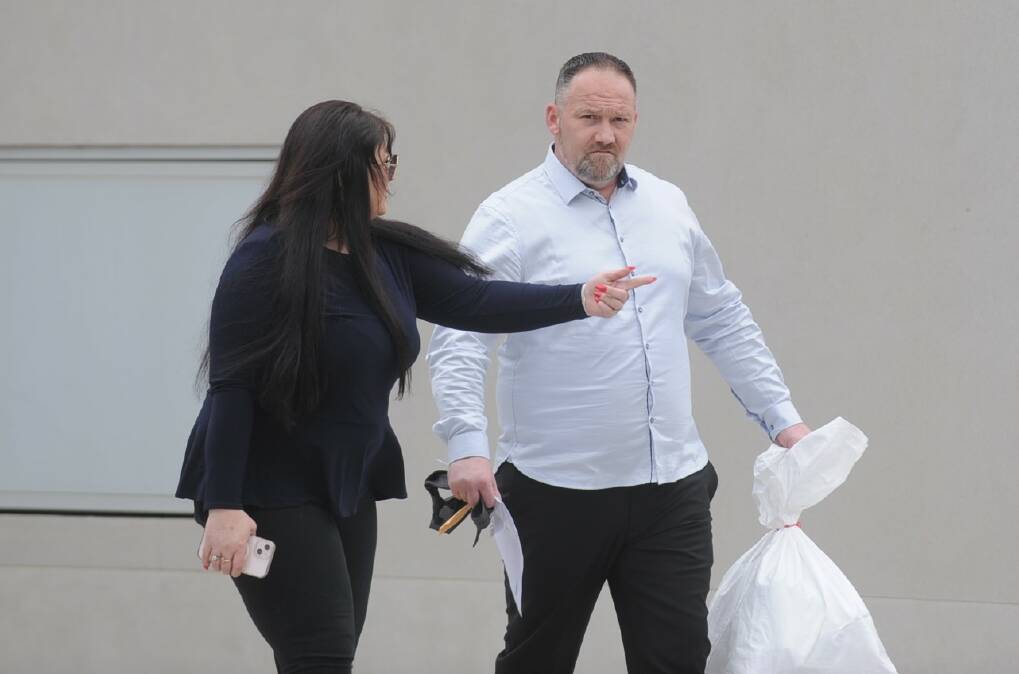
A driver who sped towards a police officer has been urged to "apply every fibre" of his strength to a drug rehabilitation program as his case is set to be the pilot of an alternate Supreme Court sentencing method for Indigenous offenders.
Kevin Thomas Clarke, 43, appeared in the ACT Supreme Court on Friday having pleaded guilty to a string of charges, including furious driving and driving a motor vehicle at police, laid over a police pursuit that occurred while he was addicted to methamphetamine last May.
In prosecution documents previously tendered to the ACT Magistrates Court, police alleged Clarke drove a Volkswagen Jetta and failed to stop in Belconnen.
Officers then spotted the vehicle travelling "well in excess" of the 80km/h speed limit on Barry Drive near Black Mountain.
After a failed attempt to stop the vehicle in Civic, police tried to deploy another tyre-deflation device when the car is said to have changed course and was driven at about 120km/h towards a senior constable.
The officer had to take evasive action, the prosecution documents state.
The pursuit then continued onto the Tuggeranong Parkway where officers said the Volkswagen was driven at speeds of up to 160km/h on only three wheels.
Eventually, 14 minutes after the chase began, the Jetta stopped on a greenbelt in Kambah and a person was seen running from it.
That person, later identified as Clarke, was arrested following a short foot pursuit and had been in custody since.
During Clarke's bail application on Friday after it was adjourned in December, the court heard Karralika Programs, a not-for-profit specialist alcohol and drug organisation, offered him a spot in a rehabilitation program.
Chief Justice Lucy McCallum granted him bail, saying he "has strong support towards rehabilitation".
"The offences appear to have been committed whilst he was in the grip of an addiction to prohibited drugs, which, to his credit, he has taken some steps to addressing whilst in custody," Chief Justice McCallum said.
She said the support offered by Karralika and his family "lead me to think that the risk of him committing an offence if granted bail can adequately be mitigated by the imposition of appropriate conditions".
The judge had earlier told Clarke this was his "best opportunity" to show he had the commitment needed for rehabilitation.
"You'll have to participate very fully in the program that's offered to you.
"I would urge you to apply every fibre of your strength to making that work between now and when you get sentenced."
Justice McCallum said the proceedings of the case "has an unusual history", which included Clarke being assessed as unsuitable for the Drug and Alcohol Sentencing List and being referred to the Galambany Circle Sentencing Court.
The latter jurisdiction operates only as part of the Magistrates Court in which Indigenous elders sit alongside a judicial officer and participate in the criminal justice process.
She said Clarke's potential Galambany court participation, which was halted because the court could not deal with one of the charges, "prompted me to think that this might be an appropriate case for a proposed pilot program of a circle-style of sentencing in the Supreme Court".
In addition to participating in the rehabilitation program, bail conditions include Clarke reporting to police once a week and residing in Phillip.
Upon his exit of the courts building on Friday, one of Clarke's supporters called this Canberra Times reporter "scum".
The matter is scheduled for return on February 2 for a directions hearing related to the prospect of circle sentencing.







